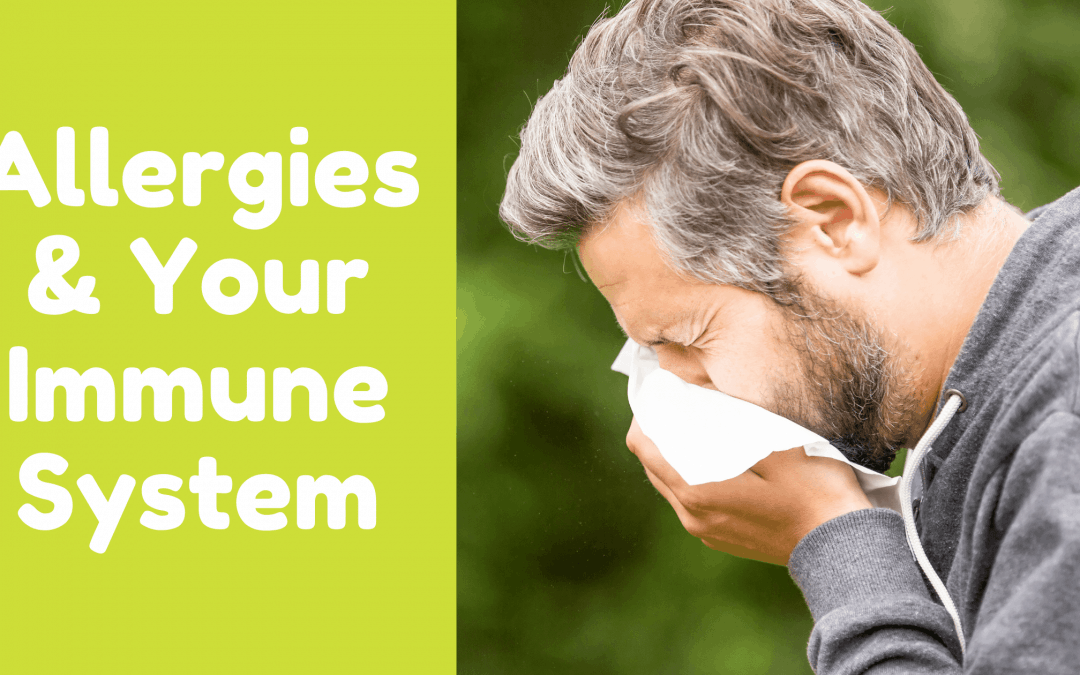More than 50 million people experience allergies. While the immune system protects the body from infections and diseases, it can sometimes malfunction, leading to autoimmune diseases where it mistakenly attacks healthy cells. Various types of allergies are triggered by the body’s immune system responding to a substance. The immune system is vital for health and survival, protecting the body from infection. Allergic reactions occur when the immune system overreacts to a harmless substance – pollen, food, pet dander, etc. Though this response cannot be medically treated, there are helpful ways allergies can be effectively managed!
Understanding Allergies & Your Immune System
The immune system comprises a critical and vast network of tissues, cells, and organs that protect the body from infection. Understanding how the immune system works is crucial for comprehending its role in protecting the body from infection. This complex network includes the innate immune system, which provides immediate defense, and the adaptive immune system, which offers a specific and enhanced response. The innate immunity involves various components and functions, including leukocytes, phagocytes, and natural killer cells, which work together to recognize and eliminate pathogens. It prevents bacteria, fungi, germs, and viruses from invading the body and causing disease or infection. This happens by identifying and attacking infectious microorganisms. Key components of the immune system include:
-
- Lymphoid Organs: includes adenoids (glands in the back of nasal passages), appendix, blood vessels, bone marrow, lymph nodes, lymphatic vessels, spleen, thymus, and tonsils.
- Lymphocytes: the lymphoid organs also release lymphocytes, a type of white blood cell. Lymphocytes include B cells, which produce antibodies, and T cells, which help recognize and destroy infected cells. These cells identify, remember, and destroy invading microorganisms.
The immune system also plays a role in identifying and eliminating cancer cells through immune surveillance, although some cancer cells can evade detection and grow despite immune responses.
The immune system identifies a particular substance as harmful and activates an immune response through various immune system cells. Lymphocytes make and release antibodies, proteins that lock onto the substance, neutralizing it and preventing harm. These antibodies and other immune cells help neutralize and eliminate harmful substances. These antibodies stay in the body, so when a person comes into contact with the same substance, they destroy it.
Types of Allergies & Allergic Reactions
There are countless allergens, external substances that a person is allergic to, that people come into contact with in three primary ways:
-
- Inhale: substances inhaled through the mouth and nose are the most prevalent allergens. Pollen is the most common allergen that people experience. Other sources of inhaled allergens include pet dander, mold, and fungi. This type of allergy is commonly referred to as hay fever.
- Ingest: ingested allergens specifically refer to food allergies. The most common food allergens are eggs, milk, peanuts, tree nuts, wheat, soy, fish, and shellfish.
- Contact: Contact allergens describe allergens that are touched and trigger the allergic response. Common contact allergens include soap, detergent, and poison ivy. These are typically easily identifiable because symptoms are visible (rashes, eczema, bumps, redness, etc.).
In addition to allergies, the immune system’s ability to respond to pathogens is crucial in preventing infectious diseases, and immunodeficiencies can increase susceptibility to such infections.
When a person comes into contact (through inhaling, consuming, or touching) with an allergen, the immune system recognizes the substance as harmful. This overreaction triggers the release of antibodies, which attack the substance and release chemicals (like histamine) into the bloodstream. White blood cells play a crucial role in this response, helping to neutralize and eliminate the allergen. This response by the immune system works to produce the symptoms associated with allergies:
-
- Itchy, watery eyes
- Runny nose, sneezing, nasal congestion
- Skin irritation, rash, dryness
- Inflammation of tongue
- Dizziness
- Nausea, vomiting, stomach pain, diarrhea
Symptoms can range from mild to life-threatening. The most severe symptom is anaphylaxis when the airways become restricted due to inflammation. This prevents airflow and makes breathing difficult, requiring immediate medical attention.
Managing Allergies
If you experience symptoms, it is essential to be evaluated by a doctor. There are a few ways that allergies are diagnosed: skin tests, blood tests, and elimination diets. Once you know the substance(s) you are allergic to, you can eliminate or reduce contact and better manage symptoms.
Different types of over-the-counter medications most commonly manage symptoms:
-
- Antihistamines: taken orally, antihistamines are used to alleviate the most common symptoms of allergies (Claritin, Zyrtec, Allegra, etc.)
- Decongestants expressly relieve nasal congestion and can be taken orally or via nasal spray.
- Nasal Spray: alleviates nasal congestion.
In addition to nonprescription medications, people often incorporate natural remedies, including:
-
- Rinsing nasal pathways to remove mucus and allergens in your nasal passages
- Using a humidifier to drain accumulated mucus
- Herbal tea mixtures to treat irritation in the throat
In addition to managing symptoms, it is essential to eliminate or reduce contact with allergens. A few tips include:
-
- Be aware of the pollen count by checking the forecast and avoid being outdoors when pollen is high
- Keep the air indoors clean by regularly vacuuming and using a purifier
- Always thoroughly read ingredient labels
If allergies are getting in the way of your best life, contact us! We provide comprehensive allergy services and allergy testing. We look forward to helping you manage your allergies.

